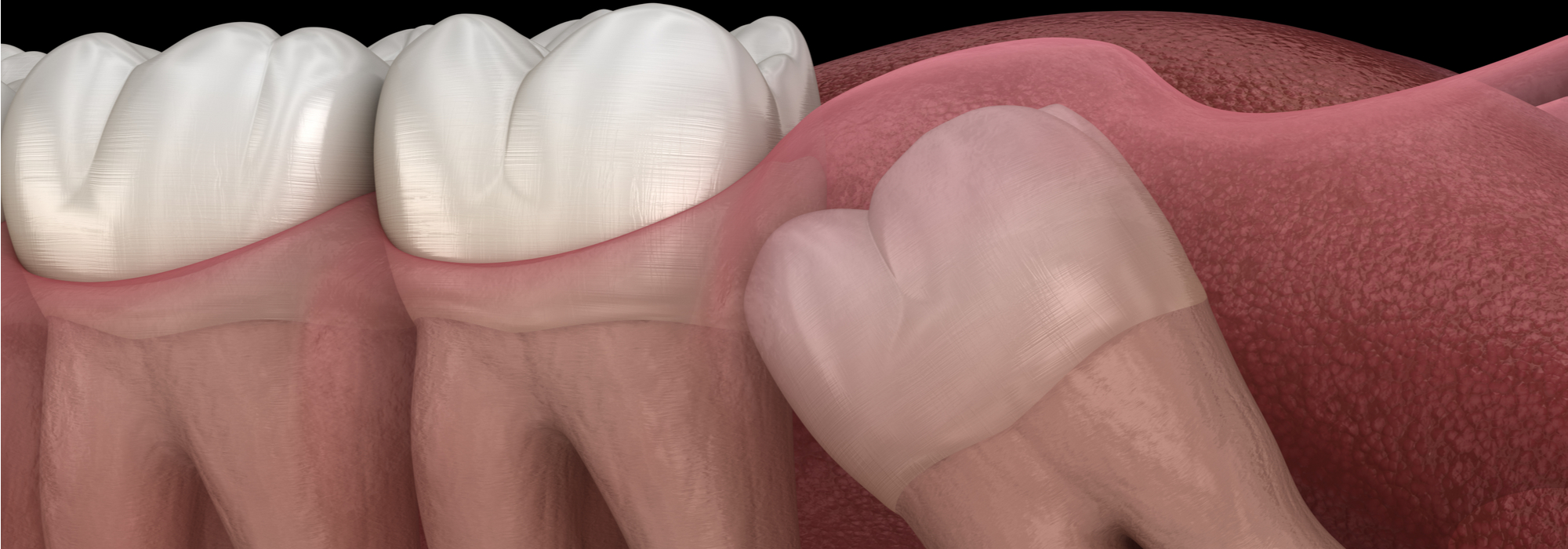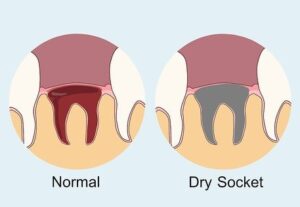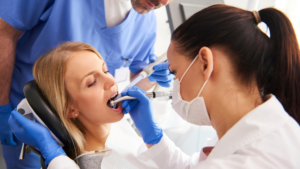Wisdom teeth are your third and last set of molars that erupt between the age of 17 and 20. Blessed are those who don’t face any difficulty when their wisdom teeth start showing up. But with most of the adult population, you will see faces contorting in pain. Your normal molars take a few days to fully settle, while a wisdom tooth can take months and sometimes years to erupt fully. You can see people facing wisdom tooth pain even in their late twenties. So, the wisdom tooth stop growing when it has fully erupted.
Why Do Wisdom Teeth Cause Such Problems?
The theory of evolution applies here. Earlier, men used to eat every kind of weird thing before civilization. There was no fire, so there was no cooked food. Then times changed. Now men eat cooked food which Is soft, juicy, and can be chewed easily. Also, with time, the human jaw got smaller. There is no place left for wisdom teeth. But it doesn’t stop them from growing. They try to make their space which causes pain, trouble, and infections.
Why Do Wisdom Teeth Take So Long To Erupt?
As it has been established that there is no extra space in your mouth for wisdom teeth, and they have to take their place. Sometimes, they get impacted, i.e., they don’t find a place and start pushing towards other teeth or the back of your mouth. They start growing in a diagonal or horizontal position. It gets stuck in your jaw bone. If not tended to in time, it can cause infection or damage to the surrounding teeth or bones.
How Do You Know Your Wisdom Teeth Are Erupting? When do wisdom tooth stop growing?
There are several signs which indicate the eruption of wisdom teeth. You can see them if you are attentive.
These signs are-
- Bad breath
- Swollen gums
- Bleeding gums
- Constant pain in the jaw and posterior molars
- Difficulty in eating and drinking
These are some general signs, which are indicative of a problem in your mouth. You can also see a partial crown of a tooth in the back of your mouth, which confirms wisdom tooth eruption.
What Is The Best Way To Deal With Wisdom Tooth?
It is normal to feel pain when a wisdom tooth erupts as it makes its way through your gum. If the wisdom tooth is erupting all right, there is nothing to worry about. If you see any of the above signs, visit your dentist. An X-ray can reveal your teeth’ position.
If it’s impacted and causing trouble, the best way to deal with it is to get it extracted. Your dentist will check the position and inform you if your teeth will erupt correctly or it will cause problems.
How Are Wisdom Teeth Removed?
It differs on a case-to-case basis. Depending on your tooth’s position, your dentist will advise if it can be removed under general anesthesia or surgery is required. If the tooth is under the gum, it is more difficult to remove. If it has erupted partly, the dentist can see it and remove it easily.
If your tooth is expected to cause problems for neighboring teeth or bones, it is broken down into pieces and removed.
What Happens If You Don’t Get Your Wisdom Tooth Extracted?
Most adults get their wisdom tooth extracted, and dentists often prescribe it as it can cause several problems. They are-
- Unusual eruption
As you now know that it may take years for a wisdom tooth to erupt fully. Meanwhile, it can cause problems in eating, drinking, opening your mouth, etc., which affects your quality of life. If it starts erupting horizontally or diagonally, it can cause damage to other teeth, which can be painful.
- Overcrowding
In your mouth, it is already difficult for 32 teeth to settle peacefully. Wisdom teeth can cause overcrowding and push other teeth to adjust. It can cause pain, crooked teeth, and other problems down the track. Your dentist will take an X-ray and inform you if you have any space in your mouth for a wisdom tooth.
- Infection
As the wisdom tooth makes its way through the gum, it makes an opening in the gum. This can become a heaven for the bacteria to grow as it is painful to brush and floss at the back of your mouth, especially when the tooth is still growing. But, in the long run, it can cause a bacterial infection that is too painful and messy to deal with.
Conclusion
Your wisdom teeth may keep erupting even when you are 30. The best way to deal with them is to see a dentist as soon as you doubt their eruption and understand their potential growth, so you can make a decision if you want to get them extracted. They are not needed in your mouth, so let your dentist make the best decision for you and get it removed.
SOURCES:
- Olze, A., Van Niekerk, P., Ishikawa, T., Zhu, B. L., Schulz, R., Maeda, H., & Schmeling, A. (2007). “Comparative study on the effect of ethnicity on wisdom tooth eruption”.
https://link.springer.com/article/10.1007/s00414-007-0171-9 - Agrawal, A., Yadav, A., Chandel, S., Singh, N., & Singhal, A. (2014). “Wisdom tooth-complications in extraction”.
https://www.thejcdp.com/doi/JCDP/pdf/10.5005/jp-journals-10024-1484 - Friedrich, R. E., Ulbricht, C., & von Maydell, L. A. B. (2003). “The influence of wisdom tooth impaction on root formation”.
https://www.sciencedirect.com/science/article/pii/S0940960203801127 - Robinson, P. D. (1994). “The impacted lower wisdom tooth: to remove or to leave alone?”.
https://europepmc.org/article/med/7875357



